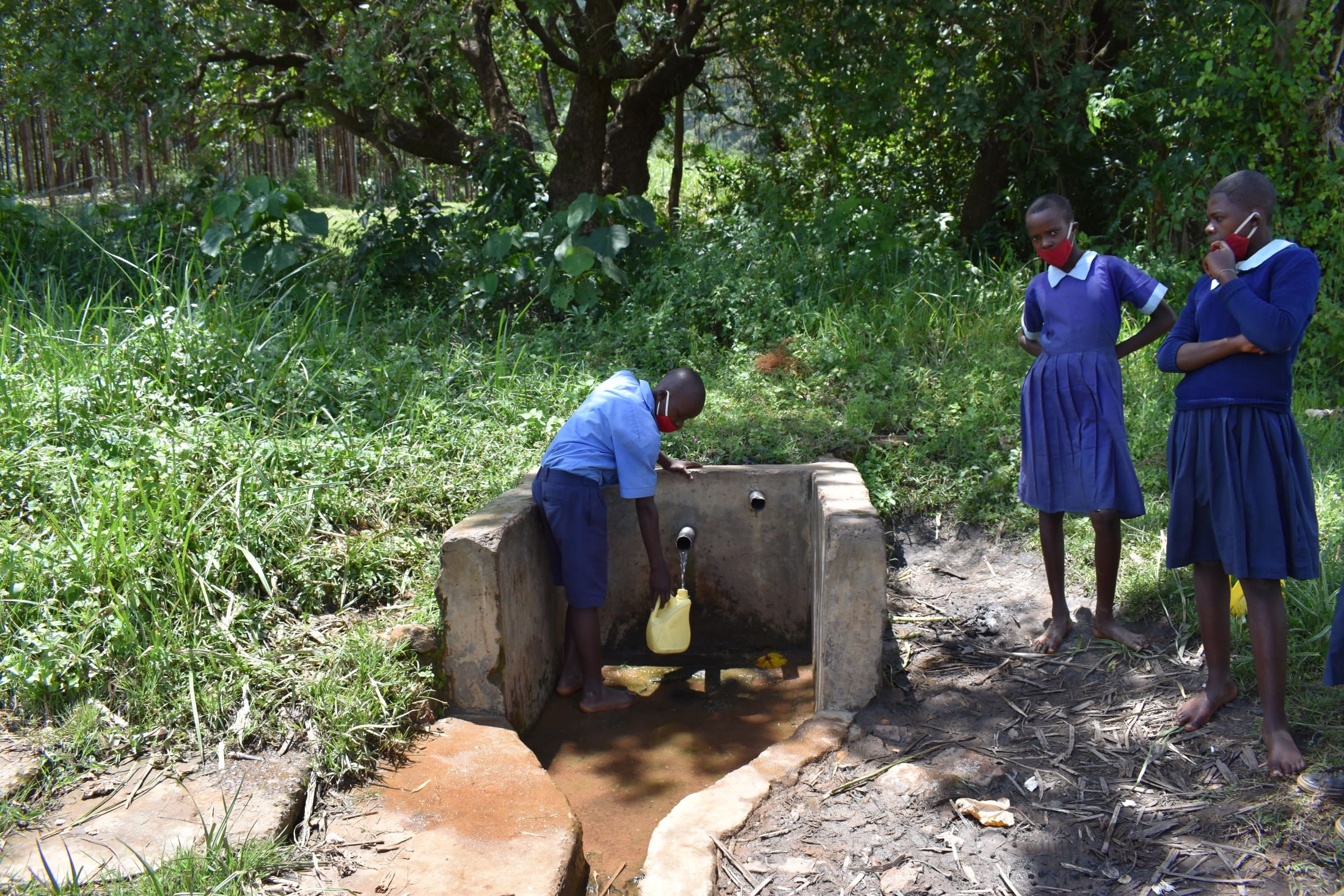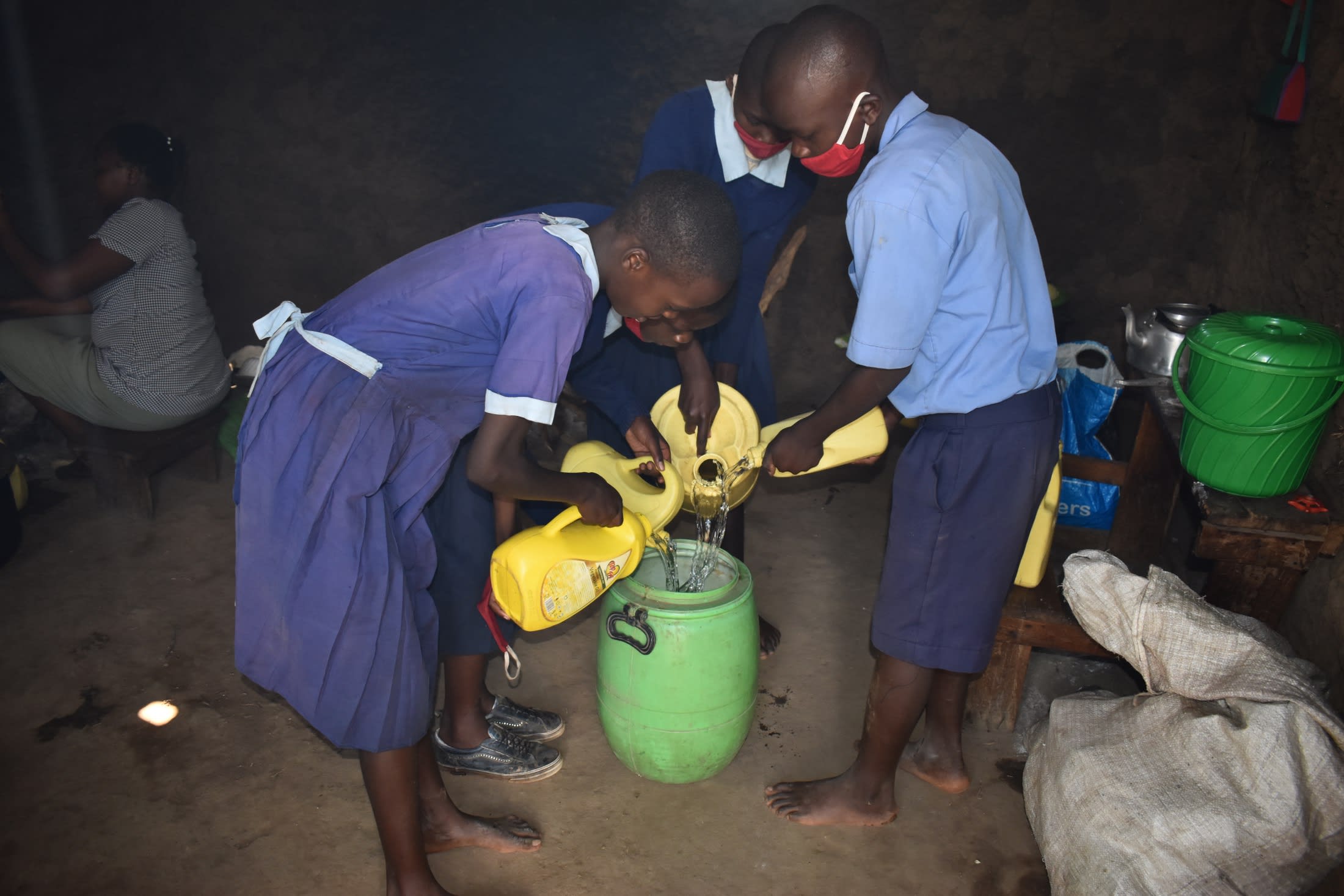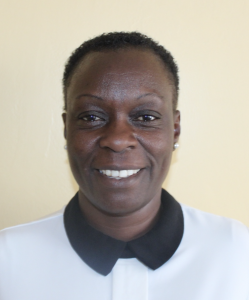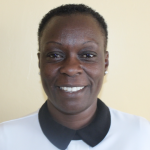Shirulo Primary School's 729 students and staff do not have a reliable, safe water source available at their school. Every day, they face the challenge of finding enough water to meet their current needs.
Pupils wake up very early and go to a nearby spring to fetch water on their way to school. They aim to get to the spring before community members, so they don't have to waste time waiting in line due to overcrowding. But the collection of water first thing in the morning is not enough due to the large school population, and by midday, teachers will appoint more pupils to leave class and go back to the spring again to fetch water. Of course, this means students are missing valuable learning time and using their energy to collect and carry water, leaving them tired and unable to concentrate in the afternoon.
Nancy J., a 15-year-old student at Shirulo, shared, "Water is life! Without water in our school, we do not have peace. Also, our performance academically is not good."

Although the spring is protected, it is not in good condition, and the area around the spring is dirty as not correctly maintained. The discharge of water is low and not enough to meet the needs of both the community and the school. Students collect water in often-dirty containers, then transfer the water collected into barrels (shown below), leading to cross-contamination.

Oliver Gadi, the Deputy Head Teacher at the school, shared his concern about students missing school because of water-related illnesses resulting from contaminated water. "We use a lot of money on medication instead of development. Our children are more often than not sick, absent from school, which makes them perform poorly in their academic work."
The school has a 3000-liter rainwater tank, but again it is not enough to serve the school as it runs out quickly, and when it does not rain, they have no water.
The proposed project will be a reliable, safe water source for the school. Having sufficient water readily available on the school property will mean pupils can concentrate on their studies and save their energy for learning.
What We Can Do:
New Well
We conducted a hydrogeological survey at this school and the results indicated the water table beneath it is an ideal candidate for a borehole well. Due to a borehole well's unique ability to tap into a safe, year-round water column, it will be poised to serve all of the water needs for this school's large population, even through the dry months.
The school will help collect the needed construction materials such as sand, rocks, and water for mixing cement. They will also provide housing and meals for the work team, in addition to providing local laborers. We will complement their materials by providing an expert team of artisans and drilling professionals, tools, hardware, and the hand-pump. Once finished, water from the well will then be used by the school’s students and staff for drinking, handwashing, cooking, cleaning, and much more.
Handwashing Stations
There is currently nowhere for students to wash their hands after using the latrines or before eating lunch, let alone the water to do so.
The student health club will oversee the two new handwashing stations we will provide, and make sure they are kept clean and in working condition. The club leaders will fill the handwashing stations with water daily and make sure they are always supplied with a cleaning agent such as soap or ash.
VIP Latrines
We will construct two triple-door latrine blocks using local materials that the school will help gather. Three doors will serve the girls and three doors will serve the boys. All of these new latrines will have cement floors that are designed to be easy to use and to clean. And with a borehole right on school property, there should be enough water to keep them clean.
Training on Health, Hygiene, COVID-19, and More
We will hold a one-day intensive training session with students, teachers, and parents. This training will cover a wide range of topics including COVID-19 symptoms, transmission routes, and prevention; personal and environmental hygiene; and the operation and maintenance of the borehole, latrines, and handwashing stations. There will be a special emphasis on handwashing.
Our team of facilitators will use a variety of methods to train, including participatory hygiene and sanitation transformation, and asset-based community development. We will initiate a student health club, which will prepare students to lead other pupils into healthy habits at school and at home. We will also lead lectures, group discussions, and provide illustrative handouts to teach health topics and ways to promote good hygiene practices within the school including handwashing and water treatment. We will then conduct a series of follow-up trainings before transitioning to our regularly scheduled support visits throughout the year.
We and the school strongly believe that all of these components will work together to improve standards at this school, which will help lead to better student academic performance and will help unlock the opportunity for these students to live better, healthier lives.

 Borehole Well and Hand Pump
Borehole Well and Hand Pump
 Rehabilitation Project
Rehabilitation Project








































